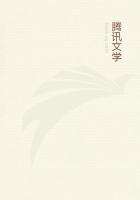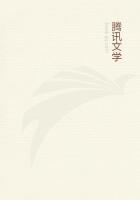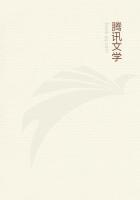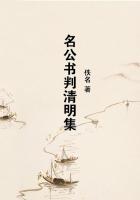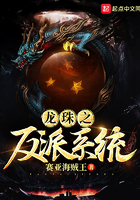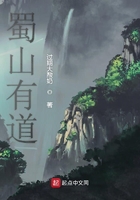Nothing can be easier or more delusive than to explain all this wild part of the Orphic cosmogony as an allegorical veil of any modern ideas we choose to select. But why the "allegory" should closely imitate the rough guesses of uncivilised peoples, Ahts, Diggers, Zunis, Cahrocs, it is less easy to explain. We can readily imagine African or American tribes who were accustomed to revere bulls, rams, snakes, and so forth, ascribing the heads of all their various animal patrons to the deity of their confederation.
We can easily see how such races as practise the savage rites of puberty should attribute to the first being the special organs of Phanes. But on the Neo-Platonic hypothesis that Orpheus was a seer of Neo-Platonic opinions, we do not see why he should have veiled his ideas under so savage an allegory. This part of the Orphic speculation is left in judicious silence by some modern commentators, such as M. Darmesteter in Les Cosmogonies Aryennes. Indeed, if we choose to regard Apollonius Rhodius, an Alexandrine poet writing in a highly civilised age, as the representative of Orphicism, it is easy to mask and pass by the more stern and characteristic fortresses of the Orphic divine. The theriomorphic Phanes is a much less "Aryan" and agreeable object than the glorious golden-winged Eros, the love-god of Apollonius Rhodius and Aristophanes.
Essais Orientaux, p. 166.
Argonautica, 1-12; Aves, 693.
On the whole, the Orphic fragments appear to contain survivals of savage myths of the origin of things blended with purer speculations. The savage ideas are finally explained by late philosophers as allegorical veils and vestments of philosophy; but the interpretation is arbitrary, and varies with the taste and fancy of each interpreter. Meanwhile the coincidence of the wilder elements with the speculations native to races in the lowest grades of civilisation is undeniable. This opinion is confirmed by the Greek myths of the origin of Man. These, too, coincide with the various absurd conjectures of savages.
In studying the various Greek local legends of the origin of Man, we encounter the difficulty of separating them from the myths of heroes, which it will be more convenient to treat separately. This difficulty we have already met in our treatment of savage traditions of the beginnings of the race. Thus we saw that among the Melanesians, Qat, and among the Ahts, Quawteaht, were heroic persons, who made men and most other things. But it was desirable to keep their performances of this sort separate from their other feats, their introduction of fire, for example, and of various arts. In the same way it will be well, in reviewing Greek legends, to keep Prometheus' share in the ****** of men apart from the other stories of his exploits as a benefactor of the men whom he made.
In Hesiod, Prometheus is the son of the Titan Iapetus, and perhaps his chief exploit is to play upon Zeus a trick of which we find the parallel in various savage myths. It seems, however, from Ovid
and other texts, that Hesiod somewhere spoke of Prometheus as having made men out of clay, like Pund-jel in the Australian, Qat in the Melanesian and Tiki in the Maori myths. The same story is preserved in Servius's commentary on Virgil. A different legend is preserved in the Etymologicum Magnum (voc. Ikonion). According to this story, after the deluge of Deucalion, "Zeus bade Prometheus and Athene make images of men out of clay, and the winds blew into them the breath of life". In confirmation of this legend, Pausanias was shown in Phocis certain stones of the colour of clay, and "smelling very like human flesh"; and these, according to the Phocians, were "the remains of the clay from which the whole human race was fashioned by Prometheus".
Ovid. Metam. i. 82.
Eclogue, vi. 42.
Pausanias, x. 4, 3.
Aristophanes, too, in the Birds (686) talks of men as , figures kneaded of clay. Thus there are sufficient traces in Greek tradition of the savage myth that man was made of clay by some superior being, like Pund-jel in the quaint Australian story.
We saw that among various rude races other theories of the origin of man were current. Men were thought to have come out of a hole in the ground or a bed of reeds, and sometimes the very scene of their first appearance was still known and pointed out to the curious. This myth was current among races who regarded themselves as the only people whose origin needed explanation. Other stories represented man as the fruit of a tree, or the child of a rock or stone, or as the descendant of one of the lower animals. Examples of these opinions in Greek legend are now to be given. In the first place, we have a fragment of Pindar, in which the poet enumerates several of the centres from which different Greek tribes believed men to have sprung. "Hard it is to find out whether Alalkomeneus, first of men, arose on the marsh of Cephissus, or whether the Curetes of Ida first, a stock divine, arose, or if it was the Phrygian Corybantes that the sun earliest saw--men like trees walking;" and Pindar mentions Egyptian and Libyan legends of the same description. The Thebans and the Arcadians held themselves to be "earth-born". "The black earth bore Pelasgus on the high wooded hills," says an ancient line of Asius. The Dryopians were an example of a race of men born from ash-trees.
The myth of gens virum truncis et duro robore nata, "born of tree-trunk and the heart of oak," had passed into a proverb even in Homer's time. Lucian mentions the Athenian myth "that men grew like cabbages out of the earth". As to Greek myths of the descent of families from animals, these will be examined in the discussion of the legend of Zeus.


